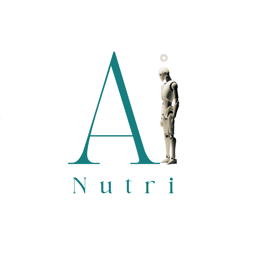
Revolutionizing nutrition
A new approach to healthy eating
Artificial Intelligence (AI) is becoming increasingly present in various areas of our lives, and Nutrition is no exception. With the evolution of technology and the emergence of advanced algorithms, AI has been used to create personalized meal plans, providing an innovative approach to healthy eating. In this article, we will explore how the integration of AI with Nutrition has revolutionized the way people approach their diet and how it can benefit health and well-being.
Personalization in nutrition: One of the main advantages of using AI in Nutrition is the ability to create personalized meal plans. Based on information provided by the user, such as age, weight, height, level of physical activity, and health goals, AI can analyze and process this data to generate an individualized meal plan. This personalized approach allows for consideration of the specific nutritional needs of each person, taking into account their food preferences, dietary restrictions, and health objectives.
Real-time data analysis: AI also allows for real-time data analysis, enabling detailed monitoring of the user's diet. With the integration of sensors and connected devices, it is possible to collect data on food intake, food quality, meal times, and other eating habits. AI can process this data and provide instant feedback to the user, helping them make more informed and healthier decisions about their diet.
Food recommendations and recipes: Based on the user's food preferences and health goals, AI can provide personalized food recommendations and recipes. Additionally, AI can learn from the user's food choices over time and improve its recommendations based on this data. This can help the user diversify their diet, discover new healthy foods and recipes, and maintain a balanced and varied diet.
24/7 support and assistance: Another advantage of using AI in Nutrition is the availability of 24/7 support and assistance. By using an AI-powered chatbot, such as the Ai Nutri mentioned in our project, users can obtain nutritional information, clarify doubts, receive food recommendations, and get support at any time without the need to wait for human assistance. This makes the experience more convenient and accessible for users, allowing them to obtain nutritional assistance when they need it.
Monitoring and progress tracking: AI can also assist in monitoring and tracking the user's progress in relation to their diet. With real-time data collection and analysis, AI can provide valuable insights about the user's eating habits, allowing them to track their progress towards established health and nutrition goals. This may include information about calorie intake, macronutrients, vitamins, and minerals, as well as identifying possible gaps in the diet. Based on this data, AI can provide feedback and suggestions for adjustments to the diet, helping the user achieve their goals more efficiently.
Potential impact on health and well-being: The use of AI in Nutrition has the potential to have a significant impact on people's health and well-being. The personalized and data-driven approach of AI can help prevent diet-related diseases such as obesity, diabetes, and cardiovascular diseases by providing meal plans tailored to the nutritional needs of each individual. Additionally, AI can encourage more conscious, diverse, and balanced food choices, promoting healthy and sustainable eating habits.
Limitations and ethical considerations: Despite the benefits, it is important to consider the limitations and ethical issues associated with the use of AI in Nutrition. The reliability and accuracy of data collected by AI can be affected by various factors, such as sensor errors, quality of information inputted by the user, and data processing failures. Additionally, it is crucial to ensure the privacy and security of user data, as well as ensuring that AI's dietary recommendations are based on robust and up-to-date scientific evidence.
Conclusion: The use of Artificial Intelligence in Nutrition has proven to be an innovative and promising approach to promoting personalized and healthy eating. With the ability to create individualized meal plans, provide food recommendations and recipes, offer 24/7 support and monitoring, and analyze large datasets for insights, AI is transforming the field of nutrition. Through the integration of AI-powered tools and applications, individuals can now receive personalized nutrition guidance and make informed decisions about their dietary choices.
As with any emerging technology, there are challenges and ethical considerations to be addressed, such as data privacy, accuracy of recommendations, and potential biases in algorithms. However, the potential benefits of AI in nutrition are vast, from improving health outcomes and reducing the burden of chronic diseases to promoting sustainable and mindful eating practices.
As we continue to harness the power of AI in nutrition, it is important to ensure responsible and ethical use, incorporating human expertise, and considering diverse populations to ensure inclusivity. With further advancements in AI and continued research, the future of personalized nutrition looks promising, paving the way for a new era of optimized and tailored dietary interventions. The integration of AI in nutrition has the potential to revolutionize the way we approach food and nutrition, ultimately leading to improved health and well-being for individuals and populations worldwide.
